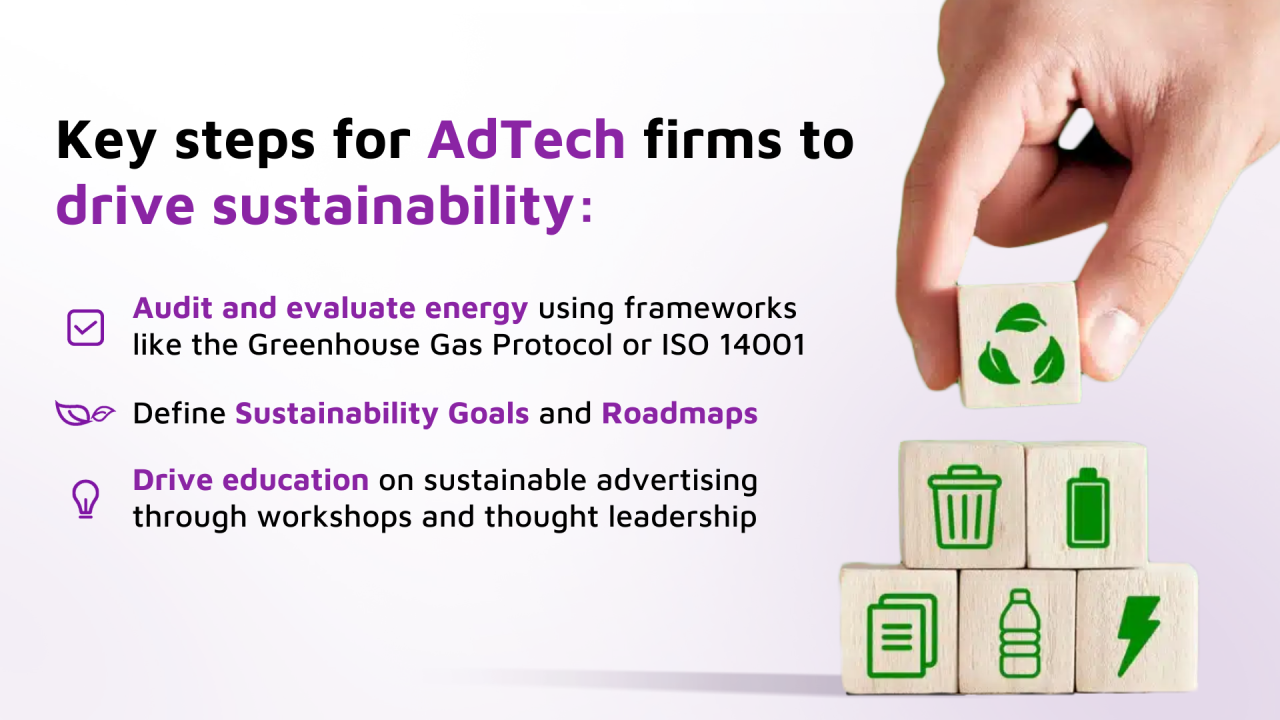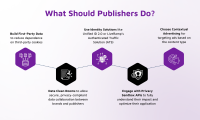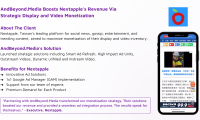Partnering for a Greener Future: How Publishers and AdTech Firms Are Making Waves Together
Digital advertising yields 13,860 metric tons of carbon yearly – equivalent to over 15 million pounds of coal burned, over 34 million miles driven in a gasoline-powered vehicle, and the energy needed to sustain 1,746 homes annually.
AdTech as an industry is incrementally taking cognisance of its massive carbon footprint. The energy consumed by data centres, ad delivery networks, and user devices contributes to this impact.
AdTech firms and publishers have a symbiotic relationship that is essential for efficiency, innovation, and sustainability. This partnership can be the perfect enabler for creating and achieving sustainability goals in the advertising ecosystem.
Greenwashing and ignorance aside, the need for sustainable advertising practices has skyrocketed in recent years. This ask is driven by an increasing awareness of climate change’s impacts on our everyday lives. AdTech firms and publishers today have an ethical responsibility towards their stakeholders and the environment in which they operate. Looking to set new benchmarks towards a greener future? Here are some ways to get started:
1. Audit your existing practices
A great place to gear up for a greener future is to audit the current processes in place. Many AdTech firms aspire to have more sustainable practices yet fall short due to the lack of actionable steps to get there. Three significant matrices that can help assess the in-house green quotient are:
Energy Consumption:
The amount of energy used by the digital infrastructure supporting advertising activities.
Waste Reduction:
The efforts to minimise waste generated by advertising materials, particularly in print or electronic media.
Carbon Footprint:
The total greenhouse gas emissions are caused directly and indirectly by an advertising campaign.
This assessment will reveal areas for improvement. Using globally standardised frameworks like the Greenhouse Gas Protocol, Carbon Disclosure Project (CDP), or ISO 14001 is best for more objectivity and accuracy.
Both AdTech firms and publishers can invest in tools and technologies that track and manage carbon emissions. Platforms like Scope3 offer comprehensive solutions for measuring the carbon footprint of digital advertising operations. By integrating such tools, publishers can monitor their emissions in real-time, while AdTech firms can optimise ad delivery to minimise energy consumption and emissions.
2. Define your sustainability goals and roadmaps
Once the objective analysis is in place, it should point out gaps and possibilities for improvement. This opens up the space to set tangible goals and blueprints to achieve them. Sustainability goals should be Specific, Measurable, Achievable, Relevant, and Time-bound (SMART) to achieve optimum impact. For instance, these goals could look like:
- Bring down carbon emissions by at least 25% within 3 years.
- Opt for 100% renewable energy usage in data centres by 2030.
- Make your offices zero-waste with a robust waste management initiative by 2025
This goal-setting process can be aligned to more significant global initiatives, such as the United Nations Sustainable Development Goals, to measure and scale impact. Then, creating partnerships with the right vendors and programs can help achieve these goals.
Incentivising partners to use sustainable ad formats and methodology can also encourage the journey from awareness to adoption. Optimising ad creatives to reduce data transfer and energy consumption, partnering with hosting providers that use renewable energy, and using programmatic platforms that prioritise energy efficiency and transparency are ways to propel this further. Publishers can prioritise these formats, and AdTech firms can provide the technical support needed to implement them effectively.
Data centers are of prime importance for AdTech operations. One can opt for servers and networking equipment with high energy efficiency ratings or transition to renewable energy sources like solar and wind power to make them more sustainable. AdTech firms can create energy-efficient platforms that encourage the use of renewable resources.
The digital advertising supply chain is another essential link in the sustainability goals. Technologies that help ascertain the environmental impact of every step in advertising processes can be designed and deployed by AdTech firms. Publishers can then leverage this information to select the right partners and processes that align with their sustainability goals.
3. Educate, Implement, Analyse, Iterate, Repeat!
Once the goals and practices are set, education becomes an essential part of the process. AdTech firms and publishers alike can drive initiatives to engage their teams and external stakeholders in education about sustainable advertising practices. This can be achieved through workshops, town halls, thought leadership, and even by setting robust SOPs in place.
Having crystal-clear goals in place can aid accountability and drive industry-wide change. Documenting and sharing progress through regular reporting instills trust within the ecosystem and is a great impetus to chase the targets. It can also inspire other industry members to follow suit.
All blueprints are great in principle until one starts implementing and executing the ideas. Sustainability is continuous work, and AdTech firms, publishers, clients, and employees must persevere in holding up their end of the bargain.
Not just education but dedicating resources for continuous, long-term growth is imperative in the quest for progress. Publishers and AdTech firms can jointly invest in innovating solutions that can set an example for the whole industry by investing in research and development.
Making waves is just the beginning. Together, publishers and AdTech firms can revolutionise the advertising industry in terms of sustainability. By taking responsibility, leaning into innovation, creating groundbreaking solutions, and making the most of data, a greener future of advertising can be embraced today.




Leave a Reply